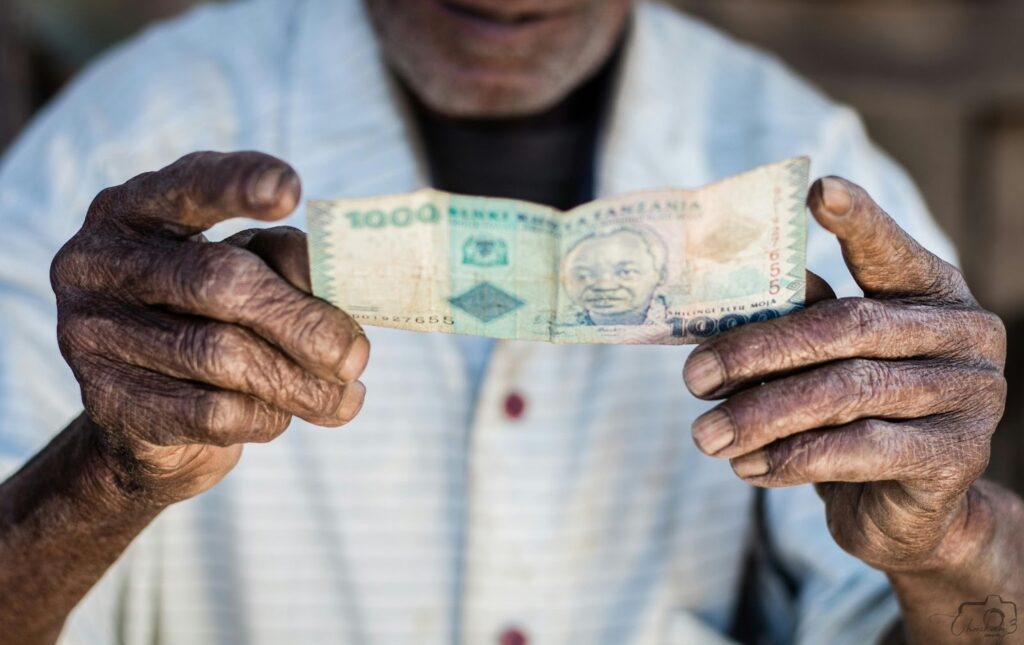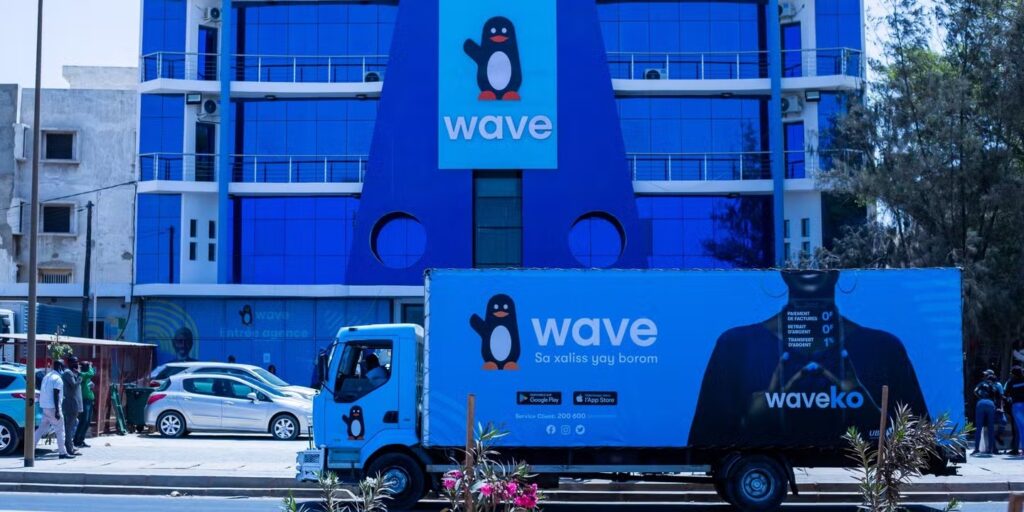On 21 October 2025, Nigerian fintech Moniepoint Inc. announced that its Series C equity raise had surpassed US$200 million, led by Development Partners International with participation from LeapFrog, Lightrock, IFC, Proparco, Google’s Africa Investment Fund, and Visa. In a parallel move, Sweden’s development finance institution Swedfund disclosed a US$10 million direct equity investment in the company. Founded in 2015 by Tosin Eniolorunda and Felix Ike, Moniepoint has become one of Africa’s leading business-banking platforms. Together, these announcements position Moniepoint as a case study of how profitability and inclusion are drawing both private and development-oriented capital into African fintech.
Transaction Details
Moniepoint’s headline move is its Series C equity round, now totaling more than US$200 million. The company first announced about US$110 million in October 2024, followed in October 2025 by additional capital that lifted the round above US$200 million, according to company statements and media reports. The round was led by private equity firm Development Partners International (through its African Development Partners III fund) and included LeapFrog Investments, Lightrock, Verod Capital Management, Alder Tree Investments, Google’s Africa Investment Fund, Visa Inc., as well as the International Finance Corporation (IFC) and Proparco. Swedfund also announced a US$10 million equity investment in Moniepoint.
The new capital will support Moniepoint’s next phase of growth: strengthening its business-banking and payment services in Nigeria and other African markets, expanding remittance corridors through MonieWorld (its UK-based subsidiary for diaspora transfers), and broadening its product suite for micro, small, and medium-sized enterprises (MSMEs) and individual customers.
Strategic Significance
According to industry trackers such as Partech Africa, which reported that nearly 60% of African tech equity funding went into fintech in 2024, and other sector-studies by Briter Bridges, a substantial share of venture and private equity funding has been directed into fintech. The drivers are clear: large segments of the population remain underbanked, mobile adoption is widespread, and digital services scale without heavy physical infrastructure.
From early mobile money pioneers like M-Pesa in Kenya to more recent giants such as Flutterwave, Chipper Cash, MNT-Halan, and Wave, fintech has attracted investors by bridging financial access in fragmented markets. As the sector matures, however, the challenge has shifted: moving beyond payments toward profitable, inclusive financial platforms. Moniepoint’s dual-track raise directly addresses that shift.
- Profitability at Scale
The Series C positions Moniepoint as one of the few African unicorns to achieve sustained profitability. While many digital startups still burn capital to acquire users, Moniepoint processes more than US$250 billion annually for over 10 million customers and reports positive earnings. This reflects an inflection point: scale alone is no longer sufficient. In today’s tighter global funding environment, unit economics, sustainability, and operational efficiency are decisive. Moniepoint’s integrated model — merchant acquiring, business banking, payments, and credit — shows that fintechs can be both inclusive and investable.
- Infrastructure for the Informal Economy
Moniepoint also provides a digital stack for MSMEs, including tools for banking, credit, inventory management, and compliance. This role is particularly significant in Nigeria’s informal economy, part of a wider African labour market where the ILO estimates that more than four out of five jobs are informal.
Traditional banks have often avoided MSMEs due to limited credit histories and perceived risk. Moniepoint, supported by a microfinance bank licence, is addressing this gap. By using transaction data to assess risk and extend credit, it helps formalise operations and expand financial access. Investors such as LeapFrog have highlighted this role, pointing to Moniepoint’s value as a partner to Africa’s small business sector.

- Converging Investor Base
What makes Moniepoint’s fundraising distinctive is the diversity of its backers. The Series C round brings together three categories of capital—commercial funds, strategic corporates, and development finance institutions—an investor mix still uncommon in African fintech.
On the commercial side, private equity firms such as DPI and impact-oriented funds including Lightrock and LeapFrog provided growth capital. Strategic corporates also played a visible role: Google’s Africa Investment Fund and Visa Inc. invested to reinforce Moniepoint’s technology and payments infrastructure, underscoring long-term confidence in Africa’s digital economy.
Alongside them, DFIs including IFC and Proparco joined the Series C.Swedfund, meanwhile, confirmed a US$10 million equity investment in Moniepoint, announced separately. Their participation is notable because DFIs have traditionally concentrated on infrastructure or early-stage pilots; involvement in profitable, later-stage fintechs remains relatively rare.
This convergence of investors reflects a maturing capital landscape. African fintechs that combine scale, profitability, and inclusion are increasingly able to attract commercial equity, corporate strategic capital, and development finance mandates simultaneously. This mix broadens available capital pools and offers a replicable model for other sectors where commercial and development objectives align.
Broader Continental Trends
Moniepoint reflects deeper transformations in Africa’s financial and developmental landscape. Two trends stand out: the shift from payment apps to full financial platforms, and the convergence between profitability and inclusion.
- Finance 2.0: From Payment Apps to Profit Platforms
A new generation of African fintechs is moving beyond digital wallets and standalone payment services toward full-fledged platforms with resilient, revenue-driven models. Moniepoint, with its integrated suite of business banking, SME credit, and regulated microfinance services, exemplifies this evolution toward financial infrastructure.
A parallel trajectory is visible at Wave, the Senegal-based unicorn. After raising US$200 million in a landmark Series A in 2021 and a reported US$137 million debt round with DFI participation in 2025, Wave is reported to have registered a bank-subsidiary, “Wave Bank Africa S.A.,” in Côte d’Ivoire.

Together, these cases illustrate the rise of “Finance 2.0”: digital platforms serving MSMEs, informal merchants, and everyday consumers as high-potential markets. They offer credible alternatives to traditional banking, with services designed for local realities.
This shift is accelerated by demographics. Africa’s population exceeds 1.4 billion today and is projected to double by 2050, with 70% under the age of 30. The demand for scalable, inclusive, digital-first financial systems is not a future prospect but an urgent requirement.
- Profitability Meets Inclusion
Historically, investors viewed financial returns and social impact as a trade-off. Africa’s most resilient companies are challenging that divide, showing that profitability and inclusion can be mutually reinforcing.
Moniepoint illustrates this shift: serving more than 10 million users, including large numbers of MSMEs and informal businesses, while operating profitably at scale. This is not an outlier but an emerging model: when inclusion is embedded in the business design, scale and sustainability follow.
This new generation of fintechs does not treat low-income users or informal businesses as peripheral beneficiaries. They are seen as core markets, with services designed to be accessible and affordable. By addressing friction points such as payments infrastructure and business credit, these companies extend financial access while generating stable, recurring revenues.
Investors are responding. Capital flows — from commercial equity to development finance — increasingly back models that expand inclusion without compromising returns. In a context where concessional aid is under pressure, symbolic approaches are no longer sufficient. Africa’s next wave of growth will depend on ventures where financial performance and social impact advance together. This is not a compromise but an emerging benchmark for development.
A Playbook for Africa’s Essential Sectors
Africa’s most vital sectors — agriculture, energy, health, and education — remain underserved, informally structured, and often reliant on donor funding. Yet they are also well suited for the kind of dual-track investment that has redefined fintech: commercial capital to build infrastructure and scale, complemented by impact capital to ensure reach, affordability, and resilience.
Early signals are already visible. In agriculture, bundled platforms that integrate mobile payments, input credit, weather information, and market access are beginning to demonstrate how smallholders can raise productivity while attracting both equity and development finance. In energy, pay-as-you-go solar models are extending electricity to rural households and showing that off-grid power can be commercially viable. In health, digital micro-insurance and care networks are proving more sustainable when anchored in mobile infrastructure and designed for the informal economy. In education, low-cost digital learning solutions using mobile delivery, modular content, and flexible payment models are expanding access at scale.
These models remain fragmented and under-leveraged. What is missing is a continental shift in how essential services are structured, funded, and scaled. A deeper transformation will require the engagement of national, regional, and international actors around four broad pillars:
- Inclusion as a Core Economic Strategy
- Shift in Investor Logic : Long-Term Structural Growth Market
- Domestic Capital Mobilisation
- Institutional & Governance Capacity
Fintech has shown that inclusive, commercially viable models are possible at scale. The challenge now is to extend that playbook to the sectors where Africa cannot afford to wait.
References
- AfricanPact. (2023, July 28). Breaking down barriers: How fintech powers financial inclusion in Kenya. AfricanPact. https://africanpact.org/2023/07/28/breaking-down-barriers-how-fintech-powers-financial-inclusion-in-kenya/
- AfricanPact. (2025, January 30). Building futures: Education in a rapidly growing Africa. AfricanPact. https://africanpact.org/2025/01/30/building-futures-education-in-a-rapidly-growing-africa/
- AfricanPact. (2025, June 12). The new face of African agriculture. AfricanPact. https://africanpact.org/2025/06/12/the-new-face-of-african-agriculture/
- AfricanPact. (2025, October 22). Africa’s energy frontier: Electrification, investment, and the race to close Africa’s power gap. AfricanPact. https://africanpact.org/2025/10/22/africa-energy-frontier-electrification-investment-power-gap/
- Briter Bridges. (2024). Africa investment report 2024. Briter Intelligence.
- International Labour Organization (ILO). (2018). Women and men in the informal economy: A statistical picture (3rd ed.). International Labour Office. https://www.ilo.org/global/publications/books/WCMS_626831/lang–en/index.htm
- Moniepoint Inc. (2024, October 31). Moniepoint raises over $110m in Series C funding to expand services [Press release].
- Moniepoint Inc. (2025, October 21). Moniepoint expands Series C round to over $200m with new investors [Press release].
- Partech Africa. (2025). 2024 Africa tech venture capital report. Partech Partners.
- Swedfund. (2025, October 22). Swedfund invests in digital payment solutions in Nigeria, boosting MSME growth. Swedfund International AB. https://www.swedfund.se/en/about-swedfund/news/swedfund-invests-in-digital-payment-solutions-in-nigeria-boosting-msme-growth
- TechCrunch. (2021, September 7). Wave raises $200M in Series A, the largest-ever for an African startup. TechCrunch. https://techcrunch.com/2021/09/07/wave-raises-200m-in-series-a
- WeeTracker. (2025, June 10). Senegal’s Wave secures $137m DFI-backed debt round. WeeTracker. https://weetracker.com
- Journal Officiel de la République de Côte d’Ivoire. (2025). Wave Bank Africa S.A. registration notice. Abidjan: Government of Côte d’Ivoire.